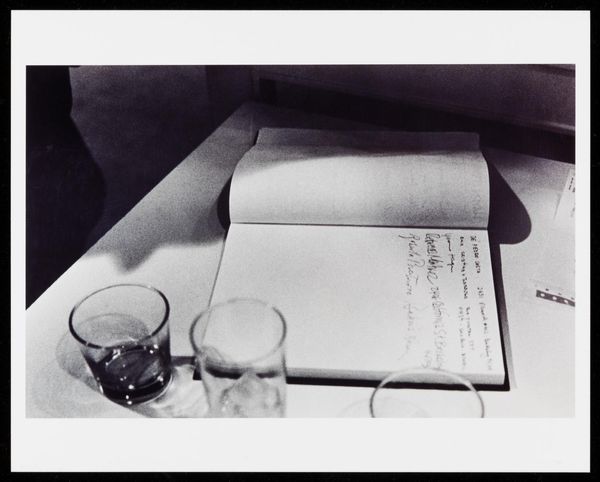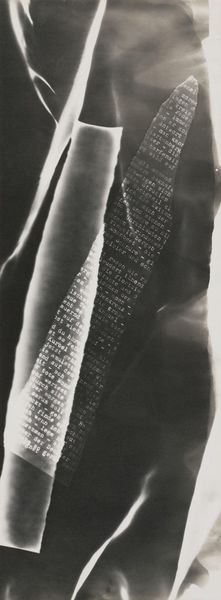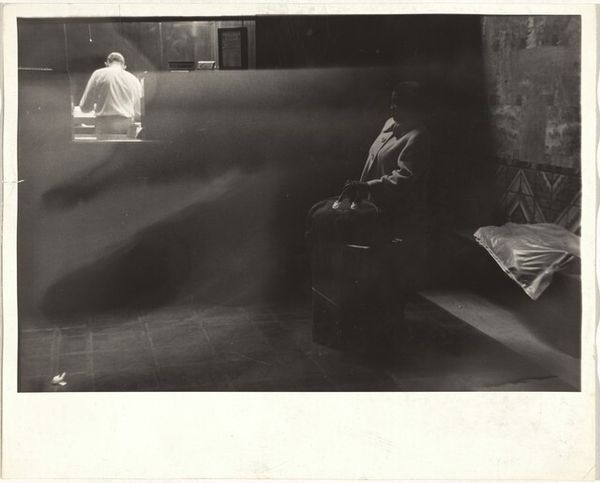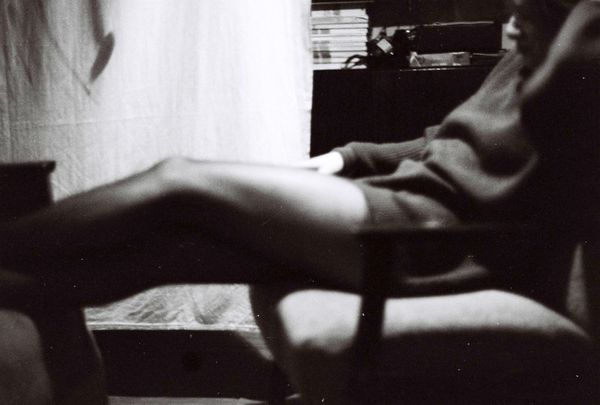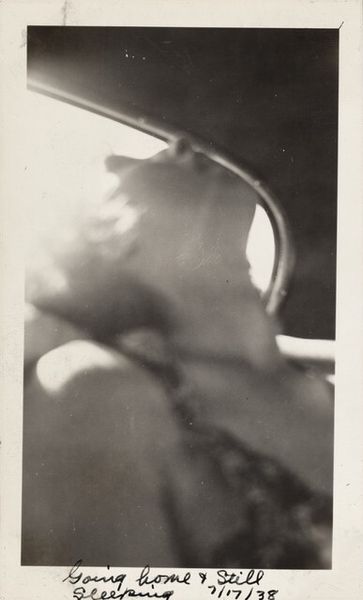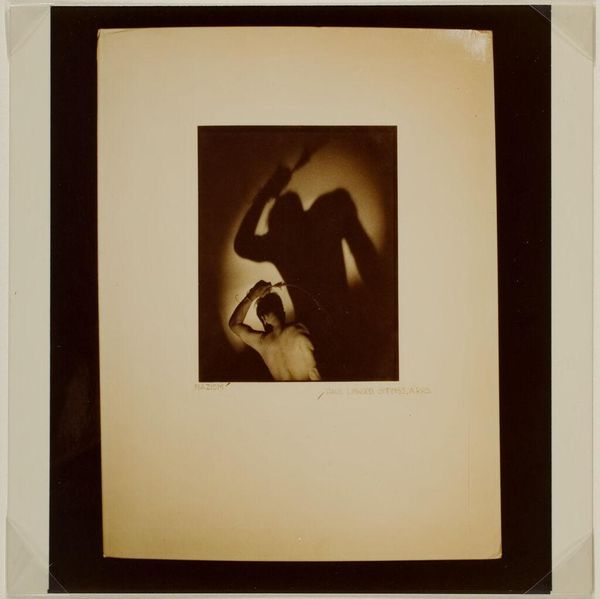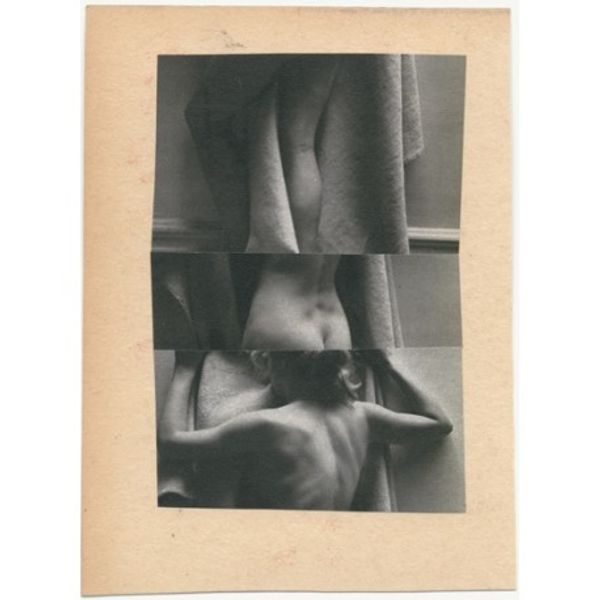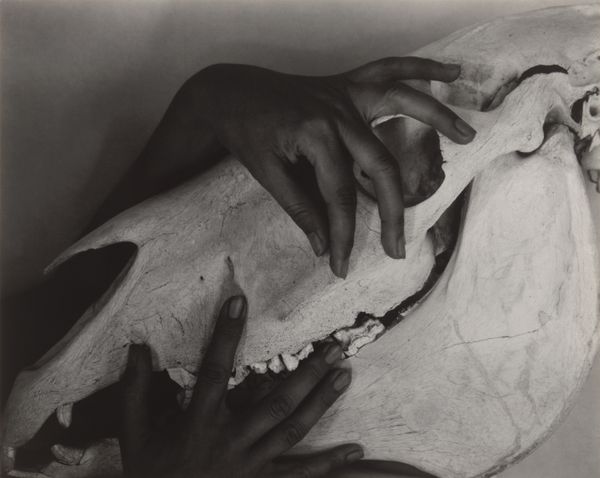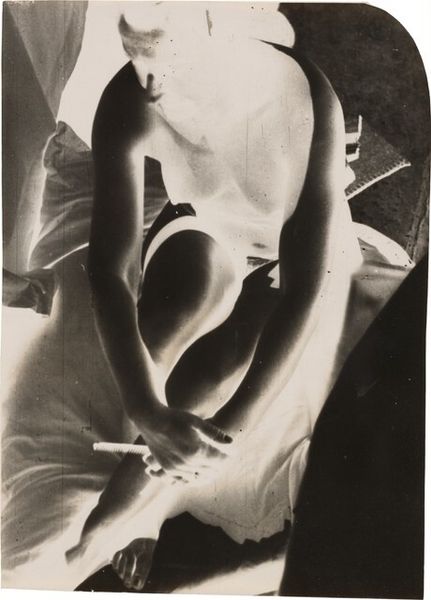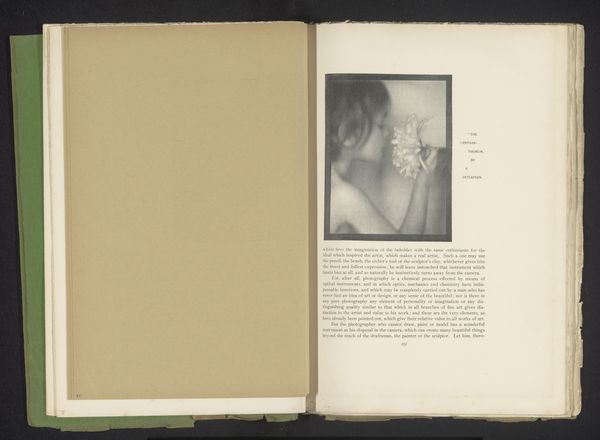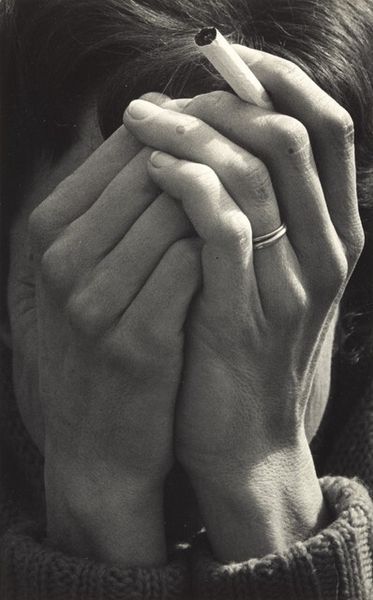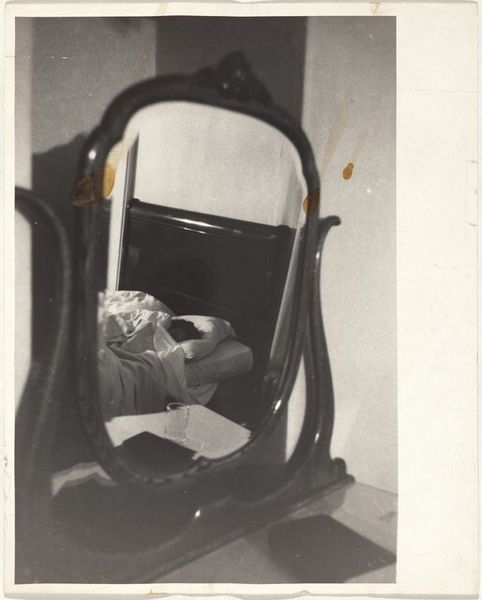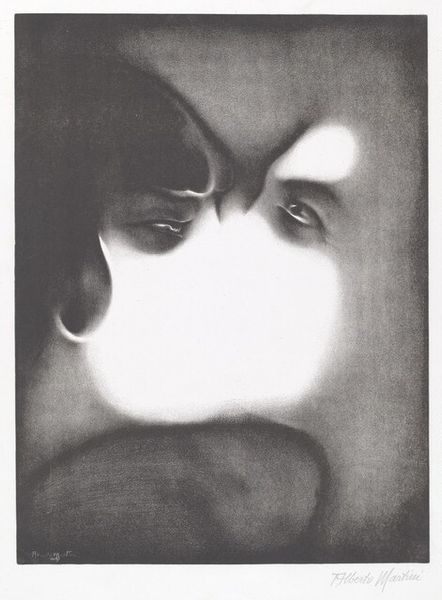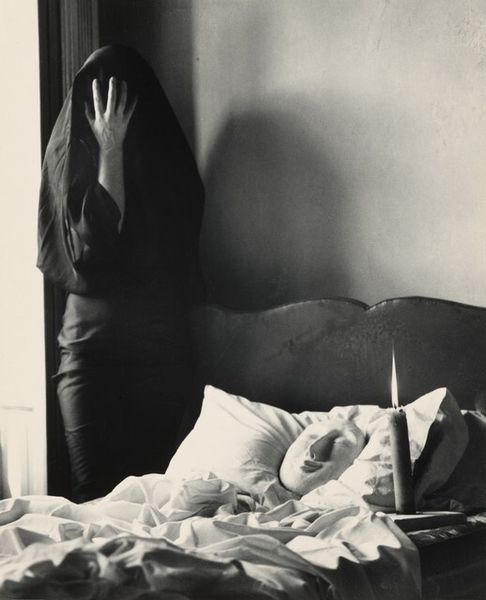
She always read the endings of books before the beginnings 1978
0:00
0:00
photography, gelatin-silver-print
#
portrait
#
print photography
#
conceptual-art
#
narrative-art
#
postmodernism
#
archive photography
#
photography
#
historical photography
#
strong emotion
#
gelatin-silver-print
Dimensions: image: 14.29 × 19.84 cm (5 5/8 × 7 13/16 in.) sheet: 20.32 × 25.4 cm (8 × 10 in.)
Copyright: National Gallery of Art: CC0 1.0
Curator: The artist Marcia Resnick created this intriguing gelatin-silver print in 1978. Its title? "She always read the endings of books before the beginnings." Editor: It evokes such a feeling of quiet melancholy. The starkness of the black and white and the close cropping make it feel very intimate, almost voyeuristic. Curator: It's more than just a snapshot. Resnick, associated with the postmodern movement, constructs a narrative around the image itself, layered with meaning and suggestion. She was deeply engaged in creating conceptual art that invited a look into personal themes, especially regarding the complex expectations assigned to women. The picture presents the end pages from “A Tale of Two Cities,” with Sydney Carton's famous words, but also the artist's added, hand-written assertion along the bottom edge. It contextualizes that poignant closing within the subject's desire to subvert norms, a distinctly postmodern, feminist reading of what one seeks to learn about destiny. Editor: Yes, I see that. Hands holding the book are so prominent and intentional. They immediately bring to mind the hands of fate or perhaps a sibyl holding sacred texts, though it's clearly a modern woman by her polished nails and shape of her fingers. Her careful gesture emphasizes control and even defiance—skipping to the "end," like circumventing tradition to decide her own destiny, despite the text about sacrifice being read. Curator: Exactly. Resnick is commenting on the desire to know one's fate but also the active, subversive decision to seize agency. This idea carries immense weight if one thinks about female agency in the late 70s, caught between generations in their goals and means for claiming equality and power. Resnick places the action of knowing, of reading "the ending", as an almost sacred act within the reach of women themselves. Editor: It's fascinating how Resnick uses these traditional literary and symbolic structures to create such a strikingly modern image. What an enduring commentary on the ways we approach both narrative and life itself. Curator: Precisely. I leave this image feeling that the very act of questioning narratives offers empowerment, an ethos that deeply shapes feminist ideology, from historical movements up through today.
Comments
No comments
Be the first to comment and join the conversation on the ultimate creative platform.
